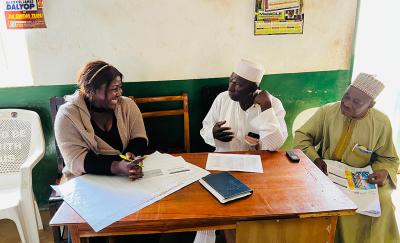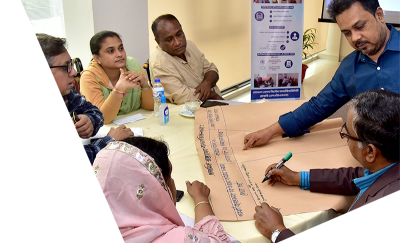

Pacific Island Countries (PICs) are particularly exposed and vulnerable to extreme weather and geological hazards—including droughts, hurricanes, floods, earthquakes, and tsunamis—due to their location in a hurricane belt and on the geologically active Pacific Rim. While early warning systems, forecasting, and built and natural infrastructure have helped save lives during such events, the livelihoods of people in the region are often still negatively—and sometimes catastrophically—impacted.
Insurance Products Abound—but So Do Limitations
By offering quick liquidity, insurance is one financial tool that can help residents restore their livelihoods after an extreme weather event. Many types of insurance exist, including micro-insurance (which insures individuals and businesses), meso-insurance (which insures groups of individuals, such as farmer cooperatives, or risk-aggregating firms, like microfinance institutions), and macro-insurance (which provides cover to municipalities and governments). Indemnity products insure against verifiable losses, while parametric products use predetermined indices as a threshold —such as the strength of a cyclone, windspeed or rainfall—to make quick payouts based on observable data.
While a wide range of insurance products could be developed, most PIC residents have limited access to affordable products that meet their insurance needs. This is in part due to large geographic areas with dispersed and remote populations, making it difficult for insurers (and other financial service providers) to offer reasonably priced products. Service providers also find it difficult to scale across the Pacific due to a lack of robust data and assessments, and growing costs due to climate change-related increases in the frequency and intensity of storms). Premiums will likely keep rising because of the risks associated with a changing climate. There are also understandable sensitivities over who should pay insurance premiums for climate risk products, given that PICs are experiencing losses and damages today despite having not appreciably contributed to global greenhouse gas emissions.
Promising Insurance Products for Pacific Islanders
Despite these hurdles, products are emerging to meet the needs. One promising example is the parametric microinsurance product introduced by the United Nations Capital Development Fund’s flagship program: the Pacific Insurance and Climate Adaptation Programme (PICAP) in Fiji, Vanuatu, and Tonga, supported by the Governments of Australia, New Zealand, and Luxembourg and the India-UN Development Partnership Fund. PICAP established strategic partnerships for an affordable product design and partnerships with 1) aggregators (such as agricultural cooperatives) for customer pooling and awareness raising, 2) insurance firms for underwriting, 3) risk modelers for risk analyses and solutions design, 4) financial technology (FinTech) firms and mobile money operators for digital delivery to reach remote customers, and 5) government and development agencies for technical and premium support. The unique partnership ecosystem allowed the parametric solution to be offered at relatively low cost and resulted in uptake by vulnerable groups such as women, low-income earners, smallholder farmers, micro, small and medium enterprises, persons with disabilities, and social welfare recipients.
This blog was originally published by the United Nations Capital Development Fund on Dec. 7, 2022; find the full entry here. Jennifer Cissé, Abt’s Director of Climate Adaptation and Resilience also contributed to this blog.

Nigeria’s state and local government-driven approaches to integrated primary health care are transforming financial protection and access for vulnerable populations, setting a replicable model for sustainable universal health coverage.

In our webinar, explore innovative financial strategies to enhance climate resilience and scale finance for sustainable development in emerging markets.

The Partnership for Climate Action, led by USAID CACCI, helps the private sector contribute to climate resilience through investment and innovation.

Abt Global is exhibiting and presenting at Health Systems Research (HSR) in Nagasaki, Japan in November 2024.


